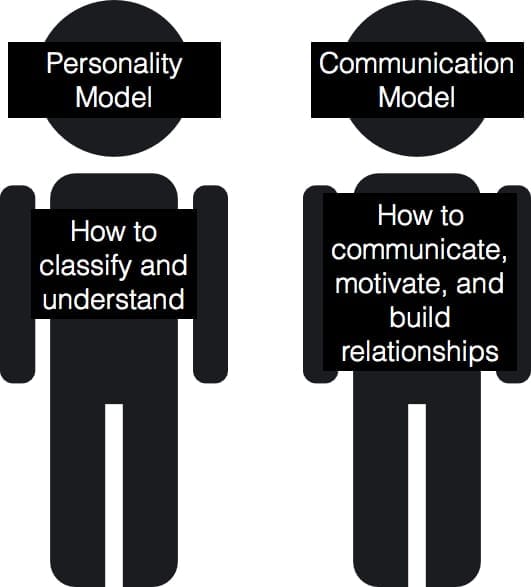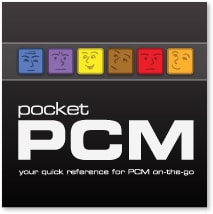When Personality Meets Communication
Share viaRecently at an international conference for Process Communication Model® (PCM) Master Trainers, I was inspired by a presentation by two friends and colleagues of mine who trainer PCM in Germany and Austria. They provided a terrific contrast between models of personality that typecast people, and models of communication that teach people how to communicate for better relationships. I asked these PCM gurus to share their perspective in this guest post. Thank you to Uwe Reiner-Kolouch & Rainer Musselmann for sharing your wisdom and experience.
During our consulting or training activities we are often asked how the “black box human being” is working. People want to know WHY other people behave, talk, work, love, organize, act, … as they do – and sometimes they also want to learn about themselves.
Personality models support stereotyping
That’s why a lot of personality models – good and less good ones – were developed and cover exactly this part of understanding the personality structures of human beings. People love to classify and put others in boxes. This apparently presents security because people think they know in which box to put the each other to handle them. Then the seminar is over, the enthusiasm disappears in the daily routines and nothing changes in their social relationships. At least they know in which box the others are caught.
So, knowing the personality structure is one thing, knowing how to develop relationships to a more positive level, adjust my own behavior from second to second to my social environment, and utilize the know how about personality structures is a complete different story.
It is like taking a picture of a person and placing it on the shelf compared to living right next to this person day by day.
The best of both worlds
 The Process Communication Model (PCM) combines the two worlds of Personality Structure and Communication Processes between people. The PCM is both a Personality Model and a Communication Model. So the “Communication Model PCM” shows different concepts for OK-OK conversations, for motivation of people and for resolving negative distress behavior. Just by choosing the right combination of words, tones, facial expressions, gestures and postures in the specific social environment we are able to invite other people (husbands, wives, children, superiors, employees, clients, customers, etc.) to have a good time together – in each single moment of a day.
The Process Communication Model (PCM) combines the two worlds of Personality Structure and Communication Processes between people. The PCM is both a Personality Model and a Communication Model. So the “Communication Model PCM” shows different concepts for OK-OK conversations, for motivation of people and for resolving negative distress behavior. Just by choosing the right combination of words, tones, facial expressions, gestures and postures in the specific social environment we are able to invite other people (husbands, wives, children, superiors, employees, clients, customers, etc.) to have a good time together – in each single moment of a day.
And the best thing is
The toolbox of Process Communication tells you how to observe these five behavioral cues in a conversation and how to can change your communication style from one moment to the other – in fact from second to second. Just by choosing another sentence pattern (e.g. from questions to commands) with the right tone can dramatically change the (short and long-term) relationship with my conversational partner. And it’s so easy – if you know it.
The mix of six
 With a little bit of training in observing and using the behavioral cues everybody will easily detect the valuable mixture of the six PCM Personality types within him/herself and within others – however, without stereotyping and with a huge appreciation for the mixture of the six PCM Types’ character strengths, leadership and communication styles. The “Communication Model PCM” shows you how to maximize different combinations of personality types to unfold and utilize all these inside potentials.
With a little bit of training in observing and using the behavioral cues everybody will easily detect the valuable mixture of the six PCM Personality types within him/herself and within others – however, without stereotyping and with a huge appreciation for the mixture of the six PCM Types’ character strengths, leadership and communication styles. The “Communication Model PCM” shows you how to maximize different combinations of personality types to unfold and utilize all these inside potentials.
And what about practical usage?
Countless tips and inspiring hints for better communication are presented and exchanged in our PCM seminars. Even years after our PCM seminars or PCM coachings our clients tell us that they are still using the tools of Process Communication for their self-management as well as for shaping their social environments. And they still have joy in doing this! Why? Because they are able to understand the social dynamic between people and they understand their own black box as well as the other’s black boxes of personalities. And they know they can adjust to them just with a simple and effective change of their communication – from second to second. When will you join this life changing experience?
Authors:
Uwe Reiner-Kolouch & Rainer Musselmann – www.kcg-pcm.de
PCM Mastertrainers in Germany, Austria, Switzerland
CEOs of Kahler Communication Germany, Austria, Switzerland
Next Element is a Unites States distributor of PCM. We train PCM and certify and support PCM trainers across the country.
 Try the app. PocketPCM is a free app for Android and iOS with tips for using the “Communication Model PCM” to improve relationships.
Try the app. PocketPCM is a free app for Android and iOS with tips for using the “Communication Model PCM” to improve relationships.
Want to learn more?
Book Your Next Keynote Speaker

Author and Co-founder of Next Element, Dr. Nate Regier is available to speak at your upcoming event.
Submit a Speaker RequestPodcast: Listen to Nate "On Compassion"
 Listen to the Podcast
Listen to the Podcast



2 Comments
PCM describes personality, fosters good conmunication and significantly impacts outstanding results in negotiations. (Based on a Harvard study about 2/3 of us show physically measurable distress symptoms when we h e a r the word negotiation.)
Add comment
I am so pleased about this distinction! Thank you Uwe and Rainer for sharing with us! It
Add comment
Add comment